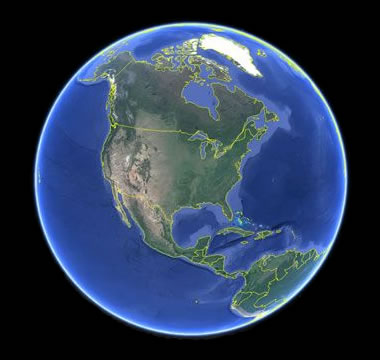Yale Law School
Given the trend of increasing global economic integration, many regional agreements—especially the African Union—seek to follow a similar model. In the EU, sovereign nations have gathered their authority in a system of courts and the European Parliament. These institutions are allowed the ability to enforce legal norms both against or for member states and citizens in a manner which is not possible through public international law. As the European Court of Justice noted in its 1963 Van Gend en Loos decision, European Union law constitutes “a new legal order of international law” for the mutual social and economic benefit of the member states. The sources for public international law development are custom, practice and treaties between sovereign nations, such as the Geneva Conventions.
- These are laid down in codes such as the Universal Declaration of Human Rights, the European Convention on Human Rights and the U.S.
- In contrast to English common law, which consists of enormous tomes of case law, codes in small books are easy to export and easy for judges to apply.
- Investigating, apprehending, charging, and trying suspected offenders is regulated by the law of criminal procedure.
- One definition is that law is a system of rules and guidelines which are enforced through social institutions to govern behaviour.
- Carolina Law donors provide the much-needed funding for scholarships, summer grants, experiential learning opportunities, faculty support and more.
One definition is that law is a system of rules and guidelines which are enforced through social institutions to govern behaviour. From Native American law to trial advocacy, and from environmental law to human rights, UCLA Law is home to top programs, centers and institutes that offer unique learning opportunities and a chance for students to make an impact while still in school. UW Law students learn not only the legal rules, but why those rules evolved to address social concerns, and how they operate in the real world. That’s what makes UW a different kind of law school, and why Wisconsin will make you a different — and better — kind of lawyer.
A new contract code in 1999 represented a move away from administrative domination. Furthermore, after negotiations lasting fifteen years, in 2001 China joined the World Trade Organization. Civil law is the legal system used in most countries around the world today.
UW Law News
This “great charter” or Magna Carta of 1215 also required that the King’s entourage of judges hold their courts and judgments at “a certain place” rather than dispensing autocratic justice in unpredictable places about the country. A concentrated and elite group of judges acquired a dominant role in law-making under this system, and compared to its European counterparts the English judiciary became highly centralised. In 1297, for instance, while the highest court in France had fifty-one judges, the English Court of Common Pleas had five. This powerful and tight-knit judiciary gave rise to a systematised process of developing common law.
From 529 to 534 AD the Byzantine Emperor Justinian I codified and consolidated Roman law up until that point, so that what remained was one-twentieth of the mass of legal texts from before. As one legal historian wrote, “Justinian consciously looked back to the golden age of Roman law and aimed to restore it to the peak it had reached three centuries before.” The Justinian Code remained in force in the East until the fall of the Byzantine Empire. Western Europe, meanwhile, relied on a mix of the Theodosian Code and Germanic customary law until the Justinian Code was rediscovered in the 11th century, and scholars at the University of Bologna used it to interpret their own laws.
Strict duties for trustees made their way into company law and were applied to directors and chief executive officers. Another example of a trustee’s duty might be to invest property wisely or sell it. This is especially the case for pension funds, the most important form of trust, where investors are trustees for people’s savings until retirement. But trusts can also be set up for charitable purposes, famous examples being the British Museum or the Rockefeller Foundation.
Last week an editorial in the New York Law Journal urged a youthful revolt against the city, twanged an idyll of lawing in the country. In other words, understanding a particular action requires applying the theory’s laws and deriving a solution. This isn’t just any law school, it’s the one that has more judges in more courtrooms than any other. In the 18th century, Adam Smith presented a philosophical foundation for explaining the relationship between law and economics. The discipline arose partly out of a critique of trade unions and U.S. antitrust law. Banking law and financial regulation set minimum standards on the amounts of capital banks must hold, and rules about best practice for investment.
Formal legal rationality was his term for the key characteristic of the kind of coherent and calculable Law that was a precondition for modern political developments and the modern bureaucratic state. Weber saw this law as having developed in parallel with the growth of capitalism. Another leading sociologist, Émile Durkheim, wrote in his classic work The Division of Labour in Society that as society becomes more complex, the body of civil law concerned primarily with restitution and compensation grows at the expense of criminal laws and penal sanctions. Other notable early legal sociologists included Hugo Sinzheimer, Theodor Geiger, Georges Gurvitch and Leon Petrażycki in Europe, and William Graham Sumner in the U.S. The most prominent economic analyst of law is 1991 Nobel Prize winner Ronald Coase, whose first major article, The Nature of the Firm , argued that the reason for the existence of firms (companies, partnerships, etc.) is the existence of transaction costs. Rational individuals trade through bilateral contracts on open markets until the costs of transactions mean that using corporations to produce things is more cost-effective.
Prominent examples of legislatures are the Houses of Parliament in London, the Congress in Washington, D.C., the Bundestag in Berlin, the Duma in Moscow, the Parlamento Italiano in Rome and the Assemblée nationale in Paris. By the principle of representative government people vote for politicians to carry out their wishes. Although countries like Israel, Greece, Sweden and China are unicameral, most countries are bicameral, meaning they have two separately appointed legislative houses.
Criminal systems of the civil law tradition distinguish between intention in the broad sense , and negligence. Negligence does not carry criminal responsibility unless a particular crime provides for its punishment. In civil law systems such as those of Italy, France, Germany, Spain and Greece, there is a distinct category of notary, a legally trained public official, compensated by the parties to a transaction. This is a 16th-century painting of such a notary by Flemish painter Quentin Massys. Most countries have systems of appeal courts, with an apex court as the ultimate judicial authority. In the United States, this authority is the Supreme Court; in Australia, the High Court; in the UK, the Supreme Court; in Germany, the Bundesverfassungsgericht; and in France, the Cour de Cassation.




